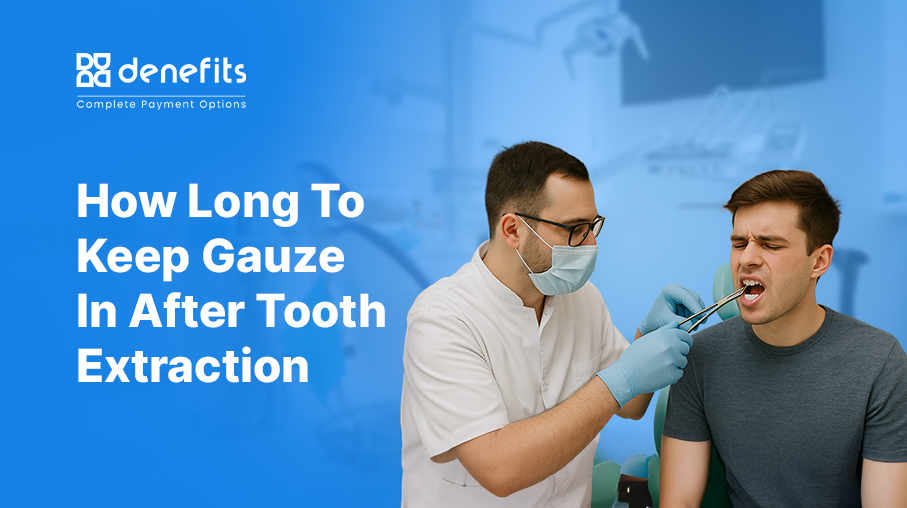
Quick Answer
Can a Tooth Infection Kill You?
It’s rare, but yes. It can become life-threatening if ignored. A simple tooth problem can turn serious if the infection spreads to your jaw, heart, or brain. That’s why early dental care is necessary.
How long until a tooth infection kills you? You may think it never gets that serious. But the truth is, even a small tooth problem can turn into something big if you ignore it. It doesn’t start with severe pain. Sometimes, there’s no pain at all. That’s why most people miss it.
The damage keeps building silently. And by the time you notice it, things are already worse. The infection can spread fast to your jaw, your face, and even your body. That’s when it becomes dangerous.
This blog breaks it all down for you. You’ll understand how a simple cavity turns into a serious infection. And why early treatment matters more than you think. Because with dental health, waiting is never a good idea.
How Fast Can a Cavity Form?
There’s no fixed time for when a cavity shows up. It depends on your habits. If you brush twice a day and eat less sugar, you’re already lowering the risk. But if your mouth stays acidic or you snack a lot, it speeds things up.
In some cases, a cavity can form in a few months. Sometimes, even weeks. And for most people, it takes months or years for a cavity to fully form. It all comes down to how often your teeth are exposed to acid. That’s why what you eat and how you care for your teeth matters.
What Makes Cavities Form Faster?
Brushing once a day may not be enough if you snack often. Every time you eat, especially sweets, bacteria release more acid. If your saliva levels are low, your teeth don’t get cleaned naturally.
That’s when cavities start forming faster than you’d expect. Back teeth and areas between teeth are the first to get affected. Because they’re harder to clean, and bacteria settle there easily.

Your Teeth Might Be Hiding a Serious Problem.
Don’t ignore — it could be forming a dangerous calculus bridge.
How Long Can a Dead Tooth Stay in Your Mouth?
A dead tooth can stay unnoticed in your mouth for a long time. It doesn’t fall out on its own right away. And because it often stops hurting, people think it’s not a problem. But that’s where things go wrong.
Just because the pain is gone doesn’t mean the infection is too. The tooth is still decaying from the inside. And if you ignore it, it can lead to a dental abscess. That’s when pus builds up, and things get serious. Your face may swell, and the pain can come back worse than before.
Even if it looks fine, a dead tooth is not healthy. It may change color or start to smell. You might feel pressure or nothing at all. Until it’s too late. That’s why it’s important to get it checked early.
Your doctor may suggest a root canal or removal. It depends on how much damage has already been done. Leaving a dead tooth in your mouth is always a risk. It’s not just about the tooth. It’s about your overall health. And as you now know, an abscess doesn’t give second chances.
It Doesn’t Happen All at Once—Tooth Abscess Stages
Abscesses don’t appear overnight. They pass through different stages as the infection spreads deeper. Each stage feels different and needs a different kind of care. If you know how it starts, you can stop it before it gets worse.
Stage 1: Enamel Decay
This is where it begins. Bacteria start damaging the enamel, which is your tooth’s outer layer. You might not feel pain yet, but your tooth starts changing. You may see white spots or feel a quick twinge with cold or sweet food. It feels minor, so people often ignore it. But this is the best time to fix it with a simple cleaning or checkup.
Stage 2: Dentin Decay
Now, the bacteria reach deeper. This layer, called dentin, is more sensitive than enamel. You’ll notice pain when chewing or drinking something hot or cold. Even cold air can trigger it sometimes. The pain becomes more regular. Not just once in a while. At this point, your dentist may suggest a filling or other treatment.
Stage 3: Pulp Decay
This is where the real trouble starts. The infection reaches the pulp, which has nerves and blood vessels. You feel strong, constant pain that doesn’t go away easily. It may even get worse when you lie down at night. You might also have bad breath or a bad taste in your mouth. This stage usually needs a root canal to clean out the infection.
Stage 4: Abscess Formation
This is the most serious stage. A pocket of pus builds up at the root of your tooth. The pain becomes unbearable and doesn’t let you sleep or eat properly. Your face may swell, and you might get a fever or swollen glands. The infection can spread fast to other parts of your face or body. If the tooth can’t be saved, it may need to be removed.

How Long Until a Tooth Infection Kills You?
It’s not something most people think about. But yes, it can be life-threatening. A tooth infection may start small, but it won’t always stay that way. If it reaches deep into the tooth, it can form an abscess. That’s when it spreads to your jaw, your neck, even your blood.
And when that happens, things can turn serious very quickly. It can lead to issues like sepsis, which is life-threatening. Sepsis affects your entire body and can damage your organs.
Many years ago, this was more common than you’d expect. Before modern dental care, a lot of people didn’t survive it. But today, it’s rare. Thanks to better treatment and faster care.
Still, rare doesn’t mean impossible. If you leave it untreated, the risk is still very real. That’s why it’s important to act early and not ignore the signs.
Pain, swelling, or pus around a tooth shouldn’t be taken lightly. These are clear signs that the infection is spreading fast. The sooner you treat it, the easier it is to control.
Treatments like antibiotics or root canals can stop it in time. But if you wait too long, it becomes harder to manage. So don’t wait. Get it checked. It’s a small step that can save you from a big problem.
Tooth Infection Going to the Brain and Heart
A tooth infection may not seem serious in the beginning. But if you leave it untreated, it can spread and cause major problems. It doesn’t always lead to death, but that doesn’t mean it’s harmless, either. The real danger starts when the infection reaches your heart or brain. At that point, it can damage important organs and become life-threatening.
So, How Long Does It Take to Reach That Stage
There’s no fixed time because it depends on how fast the infection spreads. Sometimes it stays local, but sometimes it spreads within a few days. That’s why you should never ignore signs like pain, swelling, or fever.
Here’s how a tooth infection can become dangerous:
- It can lead to sepsis, where the infection spreads throughout your body. It can also cause tissue damage, killing soft tissue in your mouth and body.
- Sometimes, it leads to inflammation near the lungs, making it hard to breathe. In rare cases, it causes endocarditis, which affects the inner lining of your heart.
- You can even develop blood clots near the brain, which is extremely risky. The infection may also lead to a brain abscess, which is a buildup of pus. And if it reaches your bones, it can turn into osteomyelitis, a bone infection.
You won’t always face these problems, but they’re possible if you ignore treatment.
So What Should You Do?
Don’t wait if you feel pain, have a fever, or notice facial swelling. Visit your dentist on time and follow the full course of treatment. If your dentist gives you antibiotics, make sure you finish all the doses. Keep your mouth clean, and don’t skip your regular dental checkups.
Choose the Best Dental Care With Denefits
Chances of you dying with a teeth infection are minimal to nothing. But you’ve to get it checked as soon as possible. Your doctor might suggest teeth removal, a root canal, or something else. And these treatments can be costly.
You certainly don’t want the headache of financial distress with a teeth infection. So, your best choice is to choose a dental professional who can provide flexible payment plans using platforms like Denefits.
It can help you choose the best treatment even if your doctor suggests multiple procedures. But make sure you inquire about payment flexibility during consultation. Not all dental professionals provide them. Your best bet is to explore your options and choose the right doctor.
The End Note: Can Gum Disease Kill You?
There is no clear answer to this. But tooth problems don’t fix themselves. They only get worse with time. So, if something feels off, don’t wait. Get it checked while you still have options.
And if cost is on your mind, ask your dentist about flexible payment plans with Denefits. Your health should never take a back seat because of money. A small step today can save you from a bigger issue tomorrow.

FAQs
1. Can You Die from Getting All Your Teeth Pulled?
Not likely. But if post-op care is ignored, infection can become life-threatening.
2. How Long Does it Take for a Tooth to Die?
Some teeth die in days from trauma. Others decay silently over months. You may not even notice until it’s too late. So, ensure you get regular checkups.
3. How Soon Will Antibiotics Stop Tooth Pain?
Relief often starts within 48 hours, but that doesn’t mean it’s gone. Always finish your antibiotics, or the infection might return even stronger.
4. Can Popping a Gum Abscess Kill You?
Yes, it might. It pushes bacteria deeper, increasing the chance of dangerous complications. Never pop it yourself. Always see a professional to drain it safely.
5. How Long Does It Take for a Tooth Nerve to Die?
Once infected, nerves can die surprisingly fast. Sometimes, in just a few days.
6. Can You Die from Wisdom Teeth Removal?
It’s very rare. But yes, severe complications can turn deadly if ignored. Always watch for swelling, fever, or bleeding, and follow your dentist’s care plan.
7. How Long Does a Tooth Abscess Last with Antibiotics?
Pain reduces within days, but healing takes time, depending on severity. If swelling stays or returns, contact your dentist right away.
8. Will Listerine Kill Tooth Infection?
No, it can’t reach deep inside your tooth where infections begin. But it helps prevent buildup.
9. Can You Die from Pulling an Infected Tooth?
Yes, if bacteria enter your bloodstream and spread beyond the tooth. That’s why infected teeth should always be treated by a dentist.
10. Can Gingivitis Kill You?
On its own, no. But it opens the door to dangerous infections. Treating it early helps protect your gums, heart, and overall health.
11. Can You Die from Swallowing a Tooth?
It’s rare, but choking or blockage can become an emergency.
12. Symptoms of Tooth Infection Spread to Sinus?
Pain behind cheeks, stuffy nose, pressure near your upper jaw—all common signs. If it feels like both toothache and sinus pain, get checked soon.
13. Can a Toothache Kill You?
If it’s caused by infection and ignored, yes—it can turn fatal.
14. How Long Can a Broken Tooth Go Untreated?
Some stay pain-free for months, but bacteria are working beneath the surface. The longer you wait, the more damage you risk.
15. Can You Die from Gingivitis?
Not directly. But neglect can cause infections that affect your heart or brain.

